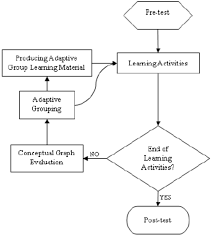
Cognitive flow, a term coined by psychologist Mihaly Csikszentmihalyi, describes a state of complete immersion and focus in an activity. When it comes to online learning, fostering this state among learners can dramatically improve their educational experience and outcomes. Here are four steps educators and course designers can take to help put learners in the zone of cognitive flow:
1. Set Clear Goals and Provide Immediate Feedback:
Online lessons must have specific, attainable goals that learners understand from the outset. Each segment or module should outline what learners are expected to achieve, creating a roadmap that guides them through the learning process. Additionally, immediate feedback allows learners to recognize their progress and adjust their approach, holding their focus and maintaining a sense of achievement.
2. Balance Challenge and Skill Level:
For cognitive flow to occur, there must be a balance between the challenge presented by the material and the learner’s current skill level. If the material is too difficult, students become frustrated; if it’s too easy, they get bored. Online courses should be designed with adaptive learning paths that adjust difficulty based on individual learner performance.
3. Create a Distraction-Free Learning Environment:
The structure of the online platform itself should facilitate focus. This means intuitive design, minimalistic interfaces, and no extraneous content or pop-ups that could divert attention away from the learning task. Moreover, teaching learners about time management and encouraging dedicated learning spaces can minimize external distractions.
4. Foster Engagement and Motivation:
Engaging content is key; videos, interactive simulations, and real-world problem-solving tasks can captivate attention more effectively than pages of text. Further boosting engagement is the social aspect – incorporating forums or group work encourages connection with peers, which can also enhance concentration and motivation.
By implementing these strategies within online courses, educators can significantly increase the chances of their students experiencing cognitive flow, leading to deeper learning and greater satisfaction with online educational platforms.
